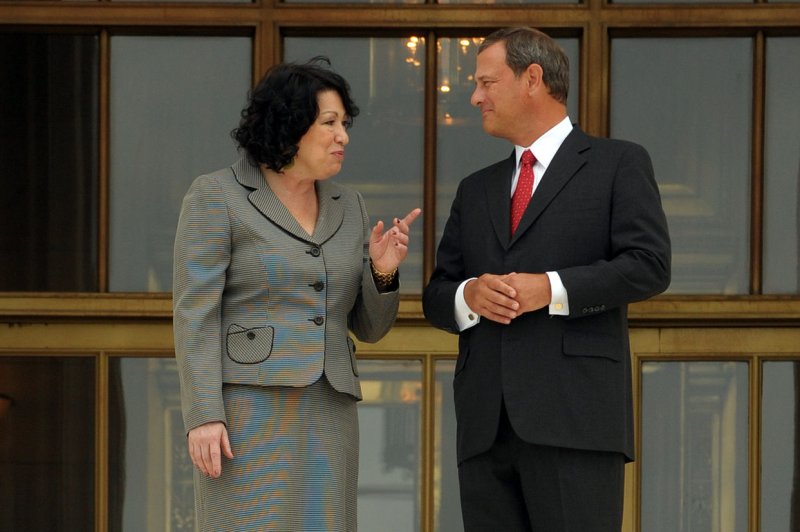U.S. Supreme Court Justice Sonia Sotomayor and Chief Justice John Roberts chat on the steps of the Supreme Court. UPI/Roger L. Wollenberg |
License Photo
WASHINGTON, June 25 (UPI) -- The U.S. Supreme Court ruled unanimously Wednesday that police cannot search the cellular phones of individuals who have been stopped or arrested without first obtaining a warrant.
Although police can search individuals for objects on their person, such as drugs or weapons, Chief Justice John Roberts ruled that the breadth and sensitivity of information stored on a cellphone is incomparable.
"That is like saying a ride on horseback is materially indistinguishable from a flight to the moon," Roberts wrote.
"Both are ways of getting from point A to point B, but little else justifies lumping them together. Modern cell phones, as a category, implicate privacy concerns far beyond those implicated by the search of a cigarette pack, a wallet, or a purse."
Roberts also noted that many smartphone users in the cloud age are unaware of how much personal data is accessible from their phones.
"Cell phone users often may not know whether particular information is stored on the device or in the cloud, and it generally makes little difference," the chief justice pointed out.
"Moreover, the same type of data may be stored locally on the device for one user and in the cloud for another ... Officers searching a phone's data would not typically know whether the information they are viewing was stored locally at the time of the arrest or has been pulled from the cloud."
American Civil Liberties Union national legal director Steven Shapiro praised the decision, saying in a statement, "We have entered a new world but, as the court today recognised, our old values still apply and limit the government's ability to rummage through the intimate details of our private lives."















